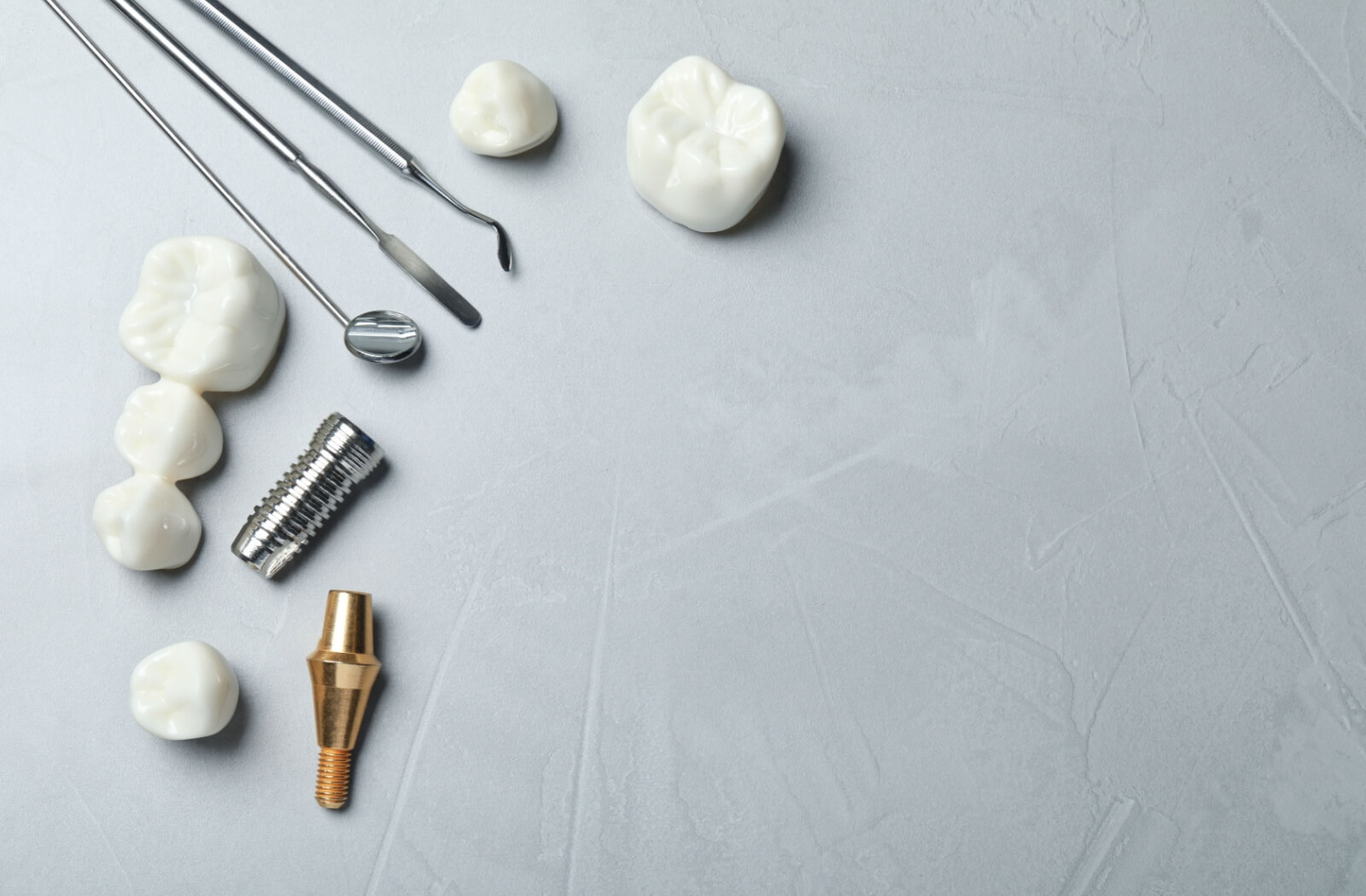Types of Dental Implants: What to Know

A beautiful and confident smile can leave a lasting impression. And for those who have lost teeth, dental implants offer a way to restore confidence in your grin.
These small but mighty fixtures provide a robust foundation for replacement teeth, mimicking the natural tooth roots in your jawbone.
To suit different dental needs, preferences, and overall bone health, there are different types of implants, including:
- Endosteal
- All-on-4
- Mini implants
- Subperiosteal
- Zygomatic
What Are Dental Implants?
Dental implants are durable solutions for missing teeth, often lasting a lifetime with proper care. They look, feel, and function like natural teeth, allowing you to enjoy your favourite foods without worry.
Implants can play a pivotal role in supporting oral health by preserving the jawbone and preventing bone loss. This helps keep your facial structure intact, supporting your overall oral health.
Implant Options for Every Need
When considering dental implants, it's essential to recognize that they aren't one-size-fits-all. Different options cater to varied needs:
Single-tooth implants replace 1 missing tooth.
Multiple teeth implants two or more teeth in a row. These implants support a custom tray to restore the function and appearance of your smile.
Full-arch implants replace an entire arch of missing teeth. These use multiple implant posts to support a custom bridge for either your upper or lower jaw.
Who Can Get Dental Implants?
Dental implants require sufficient bone strength and density to be successful. Although implants are a versatile solution, they aren’t suitable for everyone.
People with insufficient jawbone density may need bone grafting to support dental implants. Additionally, people with chronic illnesses like diabetes and immunosuppressive diseases face higher risks of complications and implant failures.
Tobacco use also affects implant success. It's essential to consult your dentist to assess whether implants are right for you. Your dentist can also recommend alternatives methods that can suit your personal needs.
The Types of Basic Dental Implants
Dental implants come in various forms, each designed for specific situations.
Endosteal Implants
Endosteal implants are made of biocompatible titanium to support osseointegration, allowing the implant to fuse with the jaw bone over time. These screw-like implants are the most commonly used type of implants. They support single or multiple teeth using abutments, which are connectors that attach the implant to a dental crown or bridge.
All-on-4 Implants
Using four strategically placed endosteal implants, this method supports a fixed denture.
All-on-4 implants offer a streamlined solution for full-arch tooth replacement. They restore your smile’s function and appearance while minimizing the number of implants needed.
Mini Implants
These smaller versions of endosteal implants range from 1.8 to 3 mm in diameter. They fit well in areas with limited space or bone density and are often used for single-tooth replacements, especially in front incisors.
Their small size typically warrants less bone strength, making them ideal for people with limited jaw bone density. They can sometimes eliminate the need for a bone grafting procedure.
Subperiosteal Implants
Ideal for those with limited jawbone density, subperiosteal implants rest on top of the jawbone beneath the gum tissue.
A custom-designed metal framework is placed over the bone, anchored by small metal posts that extend through the gums and into the bone beneath. As the gums heal, they integrate with the framework to secure it in place.
Once the framework is firmly attached to the bone, artificial teeth can be mounted onto the metal posts.
Zygomatic Implants
Reserved for complex cases, zygomatic implants are longer than traditional implants and are anchored into the cheekbone.
They provide a solution when other implant options may be unsuitable, providing a path forward for people in challenging situations.
Choosing the Right Implant for You

Selecting the right dental implant is a personal decision made in agreement with your dentist.
Because everyone’s situation is different, your dentist will play a key role in guiding your choice. Here are some questions to ask:
- What type of implant(s) do you recommend for my situation and why?
- How many implants will I need, and where will they be placed?
- What is the expected timeline for the entire implant process?
- Are there other treatments available, and how do they compare?
Depending on your procedure, your dentist will also give you detailed post-operative care and maintenance instructions. Make sure to follow their advice to promote proper healing and increase your implant success rate.
Your Dentist Is Here to Help
Understanding the various types of dental implants and their benefits can empower you to make informed decisions. If you're considering dental implants, reach out to us at Springbank Dental Centre and take the first step toward a brighter future.
We’re here to answer questions, address concerns, and guide you every step of the way. With the right support, you're just a few steps away from reclaiming your smile and confidence.